IRGC-Linked Website Denies Selling Shah's Bugatti To Fix Budget

An IRGC-affiliated news website has dismissed allegations that the classic Bugatti car once owned by Iran's former Shah has been sold to address budget shortfalls.

An IRGC-affiliated news website has dismissed allegations that the classic Bugatti car once owned by Iran's former Shah has been sold to address budget shortfalls.
Fars News Agency stated that in 1959, the car in question was sold to an individual named Houshang Jalili and subsequently taken out of the country.
"The car, bearing its Persian plate, was later sold to an American collector in the 1960s and has since been part of the collection at the Petersen Museum in California. It has never been among the assets of Sa’adabad Palace since the Islamic Revolution," Fars News added.
The agency wrote that the car, currently on display at the Petersen Museum in America, was originally gifted by the French government in 1939 to mark the marriage of Mohammad Reza Pahlavi to Egyptian princess Fawzia Fuad.
This isn't the first instance of reports circulating about the sale of this prestigious car. In 2020, Kia Parsa, the director of the Sa’adabad Cultural-Historical Complex, refuted similar social media reports regarding the sale of a 57C Bugatti, once owned by Mohammad Reza Pahlavi, following the 1979 Islamic Revolution.
Iran is facing a significant infrastructure deficit estimated at $500 billion. While many commentators and regime politicians in Iran often attribute economic challenges to President Ebrahim Raisi's administration, broader factors including foreign policy decisions, particularly under Supreme Leader Ali Khamenei, play a significant role. Sanctions from the US and Europe, coupled with limited foreign investments, have intensified Iran's reliance on dwindling oil exports.
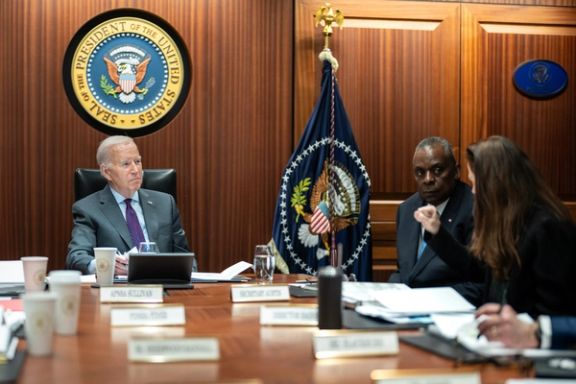
The Biden administration on Monday grappled with the idea of retaliation against Iran and its proxies without escalation of the conflict in the Middle East.
Unconfirmed reports suggested that President Biden would authorize military action in the Middle East early Tuesday local time. But no US strikes were recorded, further angering those in Washington who have been calling on Biden to ‘toughen up’ on Iran for many months –and who believe loss of American life must be avenged.
That is something the administration has promised, of course.
“The president and I will not tolerate attacks on US forces and we will take all necessary actions to defend the US and our troops,” Secretary of Defense Lloyd Austin said Monday, reiterating that “all necessary actions” will be taken.
But “necessary actions” often come with consequences. And it’s those potential consequences, it seems, that the Biden administration finds unpalatable.
“We want to avoid broader escalation,” Secretary of State Antony Blinken said, betraying the prevailing perception within the US government that a substantive attack against Iran would lead to a full-scale war in a region that’s “incredibly volatile” already.
“I would argue that we’ve not seen a situation as dangerous as the one we’re facing now across the region at least since 1973, and arguably even before that,” Blinken said, warning at the same time that the US will respond “strongly” to anyone who attempts to use the crisis to attack American personnel.
Observers noted that just last September, National Security Adviser Jake Sullivan had said that the Middle Eat is "quieter today than it's been in two decades," highlighting what they believe is the administration's lack of a coherent Middle East policy.
For critics, Iran seems to be impervious to warnings from the Biden administration for that reason. After all, the original warning, “don’t, don’t, don’t” was never backed up by action. And later statements, such as “the message has been delivered to Iran” with the airstrikes against Houthis in Yemen turned out to be more of an expression of wish than a pronouncement of fact.
Still, many experts believe that a consequential strike is inevitable this time.
With all his worries about regional “peace and stability”, with all his aversion to an oil price hike that would hit American consumers, President Biden may find it all but impossible to enter a presidential race am image of weakness in foreign policy.
Biden’s potential rival in the 2024 elections Nikkie Haley lambasted the incumbent in a Fox News interview Monday, calling for “hitting Iran smart” and “taking away their capabilities” so that no more American soldiers are hurt.
“Joe Biden has been appeasing Iran for too long,” Haley posted on X. “Dictators and thugs only respond to strength.”
More than 40 US troops have been injured in last weekend’s attack, including five with traumatic brain injury. Since October, at least 160 attacks have been recorded against American soldiers in Iraq and Syria since October. Less than ten percent of those attacks have been reciprocated. And it’s precisely due to this imbalance in aggression, Biden critics say, that three soldiers have lost their lives.
“Real leadership requires real action,” said Rep. Mike Rogers, chair of the House Armed Services Committee, in a statement. “Attacks on our servicemembers, allies, and interests will continue until this president shows strong leadership and strikes fear in our enemies.”
President Biden has vowed a strong response to the attacks that he has laid at the door of the regime in Iran. The response, according to secretary Blinken, “could be multi-levelled, come in stages, and be sustained over time.”
Experts have predicted –or suggested– a range of possible retaliatory actions: from Soleimani-style killing of military men to cyber attacks on IRGC command and control, from CIA operations to airstrikes against Iran’s navy or even oil production facilities inside Iran.
Having sensed the danger, perhaps, Iranian officials have disowned last weekend’s attack on the US base in Jordan, claiming that the array of armed groups that the Islamic Republic funds, trains, equips, and calls “Resistance”, act independently and based on their specific agendas and contingencies.
According to ‘hit Iran’ advocates, these groups cannot function –or will drastically diminish– without Iran’s support. And Iran would withdraw its support only if it’s forced to, the argument goes.

Babak Negahdari, the head of the Research Center of the Iranian Parliament, has issued alarming statements regarding Iran's climate crisis.
Negahdari revealed that over the last half-century, rainfall in the nation has decreased by 50 millimeters. Furthermore, he disclosed that “61.7 percent of Iran's land is currently grappling with drought.”
Addressing delegates at the seventh International Climate Change Conference in Tehran, Negahdari emphasized on Monday the comprehensive impact of climate change, stressing that it permeates across various sectors.
“The serious consequences of climate change affect issues such as food security, ecosystems, energy security, and more.”
Negahdari also underscored a trend of rising temperatures. He warned that if unchecked, climate change could precipitate a staggering $23 trillion economic decline by 2050.
The severity of the ongoing drought crisis was earlier highlighted by the CEO of the Water and Wastewater Engineering Company, Hashem Amini, who disclosed a significant decline in Iran's renewable water resources. From approximately 130 billion cubic meters a decade ago, the resources have dwindled to around 100 billion cubic meters.
Amini cautioned that dwindling surface water reserves are increasing reliance on underground water sources, exacerbating issues such as land subsidence.
Reports indicate that the Iranian government has been less than transparent about the extent of the land subsidence crisis related to decreasing levels of underground water, with documents suggesting deliberate concealment of information.
Official statements confirm that 49 percent of Iran's population, equivalent to 39 million individuals, are at risk due to land subsidence. Notably, Tehran and Khorasan Razavi provinces face heightened vulnerability, with the situation particularly dire in the metropolitan area of Esfahan.
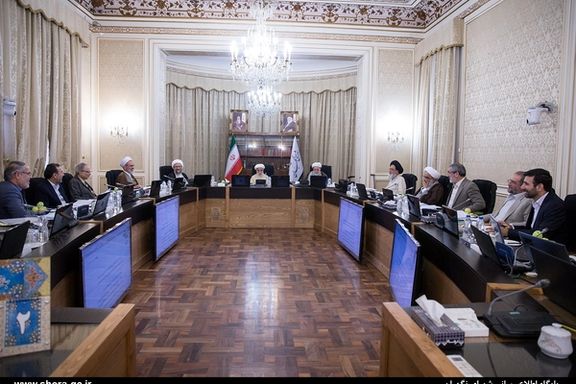
Critics argue that barring certain candidates from the Assembly of Experts elections, is an attempt to safeguard leadership plans in the event of Ali Khamenei’s death.
The Guardian Council, with powers to vet candidates, announced the results for the upcoming elections on March 1. The Assembly of Experts is the constitutionally designated body to select the future Supreme Leader, as it once did in 1989, when Ali Khamenei was chosen after the death of Ruhollah Khomeini.
The Guardian Council announced its results, disqualifying former President Hassan Rouhani, a member since 2000, and Ayatollah Ahmad Parvaei, a member since 2016. Parvaei expressed his intention to comply fully with the law and hopes the Council will reconsider its decision. Meanwhile, Rouhani demands the Council publicly state the reasons for his disqualification.
Lawmaker Javad Karimi-Ghodousi (Qoddusi) suggested in a tweet before the official announcement that Rouhani's potential to influence the choice of the future leader was a key factor in his disqualification. This suggestion drew parallels with the historical meeting at Saqifah in Medina in 632 CE, where the appointment of Abu Bakr as the leader of the Muslim community was contentious.
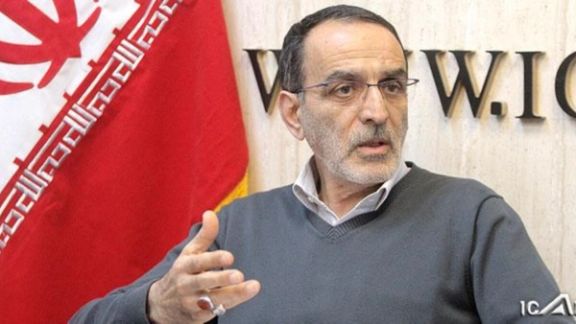
Abu Bakr’s appointment as the leader of the Muslim community, despite the insistence of the Prophet’s relatives and some of his companions who believed the Prophet had appointed his cousin and son-in-law, Ali ibn Abi Talib, as his successor marked the beginning of the division with those in favor of the meeting’s decision being labeled Sunnis and supporters of Ali’s right to caliphate as Shia.
According to the reformist Ham-Mihan newspaper, Rouhani's disqualification, rather than being solely based on legal reasons and candidates' past history, revolves around the anticipated expediency of future events.
This is not the first time such a rationale has been employed by the Guardian Council, Ham-Mihan pointed out. In 2013, it barred the veteran politician Akbar Hashemi-Rafsanjani from running in the presidential elections, citing similar considerations.
The Guardian Council, originally empowered to interpret the Constitution, review legislation, and supervise elections, bestowed upon itself discretionary supervisory powers in 1991, giving it the final say on candidate eligibility. Over the past two decades, it has used these powers to eliminate various political factions, targeting reformists, moderates, and even some conservatives.
Some prominent former officials previously disqualified from running in elections include Mahmoud Ahmadinejad and conservative parliament speaker Ali Larijani, ostensibly due to concerns about their loyalty to Khamenei.
The Council, however, has always cited other reasons for disqualifying candidates or argued that it could not confirm the candidate’s qualifications due to lack of sufficient evidence. Religious jurisprudence (ijtihad), required for running in elections of the Assembly of Experts, for instance, has often been cited for disqualification of candidates in its elections.
The Guardian Council comprises twelve members, half of whom are clerics with expertise in Sharia laws appointed by the supreme leader. The remaining six members, who may be laymen or clerics versed in civil law, are appointees of the chief justice. They require parliamentary approval for their appointments but cannot vote on matters related to Sharia.
Disputes between the Council and Parliament over legislation are referred to the Expediency Council, whose members are also appointed by the supreme leader. The Guardian Council has a history of rejecting legislative reforms related to elections, women's rights, and international human rights conventions.
This ongoing pattern of candidate disqualification has raised concerns about the transparency and fairness of Iran's electoral process.
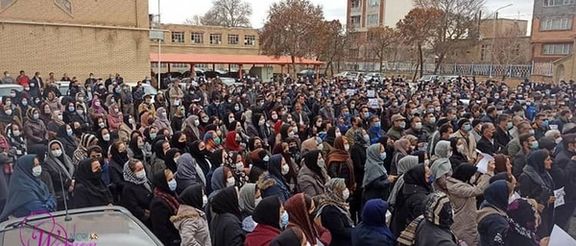
The Coordination Council of Iranian Teachers' Trade Associations has revealed that five teacher activists have been sentenced each to two years in prison after an appeal.
Gholamreza Gholami, Mohammad Ali Zahmatkesh, Iraj Rahnama, Afshin Razmjou, and Asghar Amirzadegan, along with other educators, were detained between March and May 2023. Rahnama and Gholami initiated a hunger strike on January 13, 2024, in protest to their sentences in Shiraz.
Initially, the Shiraz Revolutionary Court handed down a collective 34-year prison term to the five teachers, along with three others, in June. Gholami received an 11-year sentence, while Amirzadegan, Razmjou, Rahnama, and Zhametkesh were each sentenced to five years.
In addition to prison time, they were all subjected to two years of travel bans with passport confiscations and two years of online activity prohibitions as supplementary penalties. Gholami also faced an additional two-year exile in Birjand, located in the northeast of Iran.
However, following their appeals, the court has now reduced their prison sentences to two years each.
Meanwhile, retired teacher Omid Nasirifar was summoned by security authorities in Tehran, highlighting the ongoing pressure faced by educators.
Iranian educators have long been campaigning for higher salaries and pensions, as they are among the lowest-paid government employees. Furthermore, they have expressed their opposition to gas poisonings of schoolgirls, a crisis that surfaced in Iran last year, affecting numerous schools and impacting thousands of students.
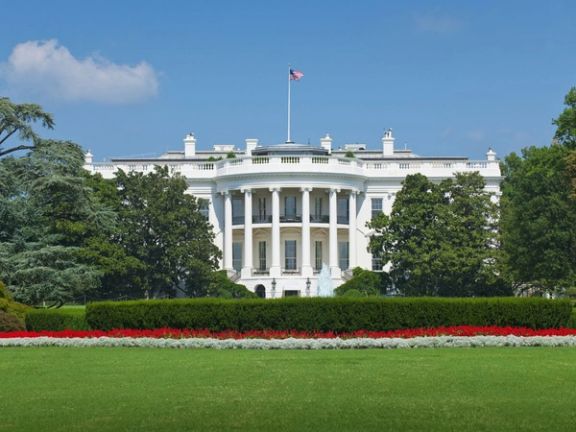
The White House is currently deliberating potential actions following a deadly assault on a US base in Jordan by militants backed by Tehran, said the Pentagon.
Major General Patrick Ryder, Press Secretary of the Department of Defense, said, “We will take necessary action to protect our forces, no matter where they're serving around the world. I'm not going to telegraph or forecast any potential response from the United States.”
“We will do whatever we need to do to protect our forces going forward. But certainly, at the end of the day, we are not looking to engage in a wider conflict merely to ensure regional security and stability,” he added.
The Sunday attack claimed the lives of three American soldiers, marking the first such deaths since the escalation of tensions triggered by the Israel-Hamas conflict in Gaza last October.
President Joe Biden faces mounting pressure to address the drone strike, refraining from directly implicating Tehran but attributing the assault to "radical Iran-backed militant groups" operating in Syria and Iraq. He pledged accountability for those responsible.
Meanwhile, the Iranian Foreign Ministry has denied involvement in the attack, dismissing allegations as "repetition of baseless accusations."
"The groups in the region do not take orders from Iran," Kanaani said. "War is not a solution. An immediate ceasefire in Gaza can lead to the return of peace."
Although Tehran has avoided direct military involvement in the Gaza war, its proxy forces in the region have attacked US troops 160 times since October.